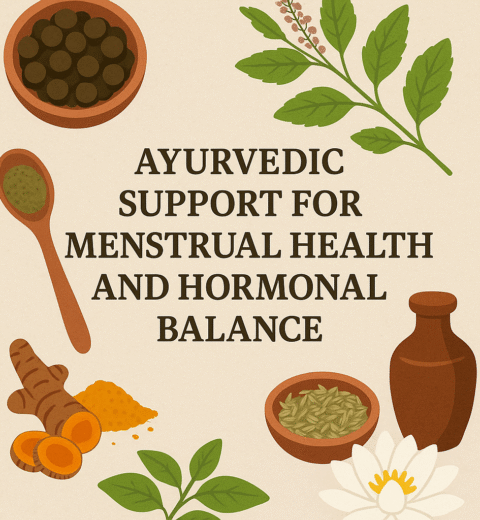Ayurveda, the ancient Indian system of holistic healing, has been around for over 5,000 years and is still widely practiced today. Despite its proven benefits and longevity, Ayurveda is often misunderstood, surrounded by various myths and misconceptions that deter people from fully embracing its practices. Whether it’s skepticism about its effectiveness or confusion over its principles, these myths can overshadow the powerful healing potential of Ayurveda.
In this blog, we’ll explore some of the most common myths surrounding Ayurveda and uncover the facts to set the record straight. By the end, you’ll have a clearer understanding of Ayurveda’s true essence and how it can benefit your health and well-being.
Myth 1: Ayurveda is Just an Ancient Form of Home Remedies
Fact: Ayurveda is a comprehensive medical system.
Many people believe that Ayurveda is merely a collection of age-old home remedies passed down through generations. While it is true that Ayurveda uses natural ingredients like herbs and spices, it is far more than just kitchen-based solutions. Ayurveda is a complete medical system with a scientific foundation. It encompasses a wide range of practices, including internal medicine, surgery, psychiatry, pediatrics, and even rejuvenation therapies.
Ayurveda focuses on diagnosing the root cause of diseases and provides personalized treatments that include herbal medicines, dietary guidelines, detoxification therapies (like Panchakarma), and lifestyle recommendations. Ayurvedic practitioners undergo extensive training and are qualified to diagnose and treat various health conditions.
Myth 2: Ayurvedic Treatments Take a Long Time to Show Results
Fact: Ayurveda offers both immediate relief and long-term healing.
A common belief is that Ayurvedic treatments are slow to show results, making people reluctant to choose them over modern medicine. However, this is not entirely true. While Ayurveda does focus on long-term healing and prevention, it can also provide immediate relief in many cases.
For example, conditions like indigestion, headaches, and minor skin issues can often be addressed quickly with Ayurvedic remedies. The difference lies in Ayurveda’s approach—it treats the underlying cause of the disease rather than just the symptoms, which may take time but results in more sustainable health improvements.
Myth 3: Ayurveda is Based on Superstitions and Myths
Fact: Ayurveda is rooted in scientific principles and extensive research.
Many skeptics dismiss Ayurveda as a system based on superstitions or unverified theories. However, Ayurveda is a science-based medical system that relies on empirical knowledge and practical application. Ancient Ayurvedic texts like the Charaka Samhita and Sushruta Samhita contain detailed information on anatomy, physiology, pharmacology, and clinical diagnosis.
In fact, many modern scientific studies have validated the effectiveness of Ayurvedic herbs like Turmeric (Curcuma longa) for its anti-inflammatory properties, Ashwagandha (Withania somnifera) for stress relief, and Neem (Azadirachta indica) for its antibacterial effects.
Myth 4: Ayurvedic Medicines Have No Side Effects
Fact: Like any other treatment, Ayurvedic medicines can have side effects if misused.
It is a common misconception that Ayurvedic medicines are entirely free of side effects because they are natural. While Ayurvedic remedies are generally safer than synthetic drugs, misuse or overuse of certain herbs and formulations can lead to side effects. For instance, herbs like Guggulu or Triphala are powerful and should be used according to prescribed dosages.
It’s crucial to consult a qualified Ayurvedic practitioner who can recommend the right herbs and dosages based on your body type (Prakriti) and specific health conditions. Self-medication without proper guidance can lead to adverse effects, just like with conventional medicines.
Myth 5: Ayurveda is Only for Indians
Fact: Ayurveda is a universal health system that benefits people of all cultures.
Another common myth is that Ayurveda is only suitable for Indians due to its cultural and regional origins. However, Ayurveda’s principles are universal and can be applied to people of any ethnicity or background. The core philosophy of Ayurveda focuses on achieving balance in the body and mind, which is relevant to everyone, regardless of their origin.
In fact, Ayurveda has gained worldwide recognition, with people from all over the globe embracing its healing practices. Countries like the United States, Germany, and Australia have established Ayurvedic wellness centers and clinics where practitioners cater to a diverse range of clients.
Myth 6: Ayurveda is Against Modern Medicine
Fact: Ayurveda and modern medicine can complement each other.
There is a widespread belief that Ayurveda is incompatible with modern medicine, leading to a divide between the two. However, many practitioners and researchers advocate for an integrative approach, where Ayurveda and modern medicine can be used together to achieve optimal health outcomes.
For example, Ayurveda can be used to manage chronic conditions like arthritis, diabetes, and stress-related disorders, while modern medicine can address acute conditions and emergencies. Combining the best of both systems can lead to a more comprehensive and effective healthcare strategy.
Myth 7: Ayurvedic Diets are Strict and Hard to Follow
Fact: Ayurvedic diets are flexible and personalized.
Ayurvedic diets are often perceived as being overly strict and difficult to follow. In reality, Ayurveda emphasizes a personalized approach to diet that caters to an individual’s unique constitution (dosha). Instead of a one-size-fits-all approach, Ayurvedic diets focus on foods that align with your body type, lifestyle, and seasonal changes.
For instance, a Vata-dominant person may benefit from warm, nourishing foods like soups and stews, while a Pitta type might thrive on cooling foods like fresh vegetables and salads. Ayurveda encourages balance and moderation rather than rigid dietary restrictions, making it easier to adapt to various preferences and cultures.
Myth 8: Panchakarma is Only for the Sick
Fact: Panchakarma is beneficial for both preventive health and treating illnesses.
Panchakarma, Ayurveda’s detoxification therapy, is often misunderstood as being solely for those who are unwell. While it is highly effective in treating various diseases, Panchakarma is also used for preventive health and rejuvenation. Undergoing Panchakarma helps in flushing out accumulated toxins, boosting immunity, enhancing vitality, and slowing down the aging process.
Many healthy individuals undergo Panchakarma as a seasonal detox to maintain their health, energy levels, and mental clarity.
Myth 9: Ayurveda is Only About Herbal Medicines
Fact: Ayurveda is a holistic system that includes lifestyle, diet, yoga, and meditation.
While Ayurvedic herbs and medicines are an essential part of the treatment, Ayurveda is a holistic system that goes beyond just herbal remedies. It includes a wide range of practices like yoga, meditation, breathing exercises (Pranayama), dietary modifications, and lifestyle adjustments.
Ayurveda’s goal is to promote overall well-being by addressing physical, mental, and emotional health. For example, practicing yoga and meditation helps in calming the mind and reducing stress, while dietary guidelines focus on eating according to your dosha for optimal digestion and energy.
Myth 10: Ayurveda is Outdated and Irrelevant in Today’s World
Fact: Ayurveda is more relevant than ever in the modern age.
In today’s fast-paced world, filled with stress, pollution, and unhealthy lifestyles, Ayurveda offers timeless wisdom that is increasingly relevant. Its emphasis on prevention, natural healing, and holistic well-being provides a counterbalance to the modern approach of quick fixes and synthetic drugs.
With the rising interest in natural and holistic health solutions, Ayurveda is experiencing a resurgence globally. More people are turning to Ayurvedic principles to enhance their quality of life, manage stress, improve sleep, and achieve a state of balance.
Conclusion: Embracing the Wisdom of Ayurveda
Ayurveda is a profound system of health and healing that goes beyond the treatment of diseases. It offers a comprehensive approach to achieving balance, longevity, and wellness. By understanding and debunking these myths, we can appreciate the true potential of Ayurveda and integrate its practices into our modern lives.
Whether you’re looking to detox, improve your digestion, manage stress, or simply lead a healthier lifestyle, Ayurveda has something valuable to offer. Embrace this ancient wisdom and discover a path to holistic health and well-being.
Are you ready to explore the transformative power of Ayurveda? You can consult a qualified Ayurvedic practitioners at our platform and start your journey towards holistic wellness!





